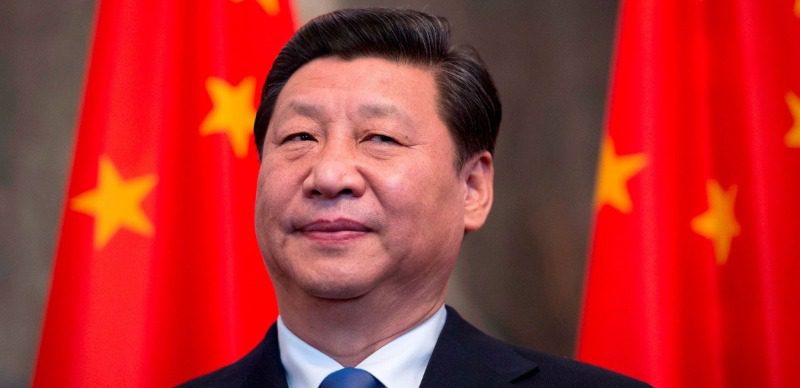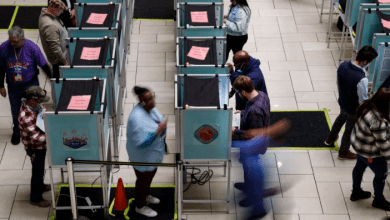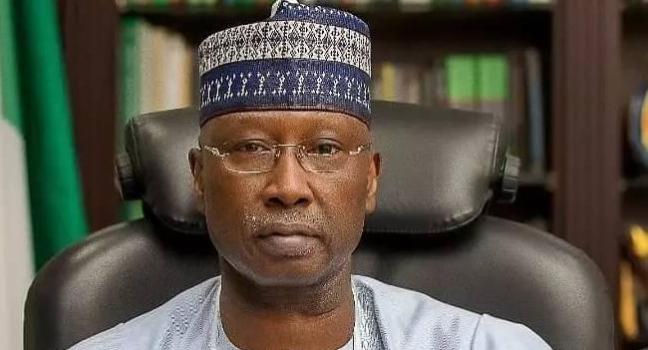
China’s Xi to secure third term as president
At a rubber-stamp parliament that convenes this weekend, Xi Jinping will win a third term as China’s leader, maintaining his unchallengeable position in spite of criticism of his management of the Covid and the economy.
After securing another five years in October as the head of the Communist Party (CCP) and the military, the two most important leadership posts in Chinese politics, Xi is almost expected to be reappointed as president.
Since then, Xi, now69, has had to deal with unforeseen difficulties and criticism of his leadership due to widespread demonstrations against his zero-Covid policy and its eventual abandonment, which resulted in the deaths of numerous people.
During the National People’s Conference (NPC), a meticulously orchestrated occasion that will also witness the introduction of a supporter of Xi as the next premier, such concerns are virtually certainly going to be ignored.
The NPC, which begins on Sunday, is anticipated to run for about 10 days and finish with the endorsement of Xi’s presidency by the 3,000 delegates who cast ballots in Beijing’s Great Hall of the People.
Alfred Muluan Wu, an associate professor at the Lee Kuan Yew School of Public Affairs at the National University of Singapore, said that the general public’s impression of him is probably not favorable because to zero-detrimental Covid’s effects on people’s religion.
Yet, Wu noted that Xi continues to have a “very solid” position at the head of the party, making him almost invincible.
Up until the end of last year, China kept some of the tightest COVID limitations in the world in place, crushing social life and economic progress with a never-ending bombardment of testing requirements, quarantines, and travel restrictions that Xi personally promoted.
In November, popular dissatisfaction erupted into the largest public protests in decades, which were followed by the policy’s swift demise and a flurry of infections and fatalities that remained mostly unreported by the authorities.
After three years during which commerce, employment, and even education were forced to comply with the government’s desire to eradicate the virus at all costs, the nation is still just hesitantly emerging from the pandemic.
On the first day of the NPC, the assembled legislators will likely set some of China’s weakest economic growth targets in decades, according to analysts consulted by AFP.
The status of Xi, who has filled the party’s top positions with allies and kicked opponents out of last year’s Congress upheaval, is not in any danger, however.
Xi confidant and former Shanghai party boss Li Qiang is expected to be chosen premier.
According to Christopher Johnson, president and CEO of China Strategy Group, last year’s demonstrations “provided him precisely the exit he was hoping for” rather than endangering Xi’s authority.
“If giving up zero-Covid went well, he could… claim he paid attention to the people. If it failed, he could put the blame onto the demonstrators and the “hostile foreign forces” that his senior security official had implied were responsible, the author argued in a recent piece for Foreign Affairs magazine.
Stephen Tsang, head of the University of London’s SOAS China Centre, said that Xi now had the chance to show off how he handled pressure.
“When the demonstrations included requests for him and the CCP to resign, he responded forcefully. He put an end to them and eliminated the root issue, Tsang told AFP.
Instead of being forced to respond, “he may position himself as leading from the front.”
Nevertheless, retired professor of politics at Oxford University Vivienne Shue said that it was time for Chinese officials to take stock of “what obviously appears like a cumulative record of failures” in dealing with crises in recent years.
Disintegrating –
According to state media sources, delegates to the NPC and the concurrent “political consultative conference” (CPPCC) will also ratify a number of personnel changes and address a variety of topics, including the economic recovery and enhanced sex education in schools.
Meetings provide a venue for participants to discuss personal ideas, but they are mostly unable to influence how China is run on a larger scale.
The conclave this year will take place amid the background of tense relations with Western nations.
Dismay about Beijing’s ambiguous attitude on its partner Russia’s invasion of Ukraine has been heightened by a dispute with the United States over suspected surveillance balloons.
Outgoing Premier Li Keqiang is anticipated to use his address at Sunday’s opening ceremony to vow an increase in military expenditure in addition to unveiling China’s GDP goal for the next year.





Good
Good
Good
Good
Okay
Southwest
Smh dxc
Oh okay
Good
K, China
Italian
Wow
Hi
????
Okay
Okay
It’s okay
Really
Why
Good one
No way
Nice
????
Datz good
It’s always ok if a leader value the opinion of his people, but in the law of leadership, you are governing by the opinion of your people and not just your wills
That’s true sha
That’s okay
Yh
Good news
Good
Ohh
Okay
Alright
Fine
They have no problem in all this country
At all
Okay
That’s interesting
If the leader value the opinion of his leader they won’t have any problems
Wow
Yeah
News!!!
Fine
I don’t like this
Omg
Why
Ok
Hmm .. new formats
What is their fates
What is there faith
Good news
Okay
Good
Nice one
Awesome
Things will go Fine if he’s a good leader
Chaye
Madeooo
Nice
Nice
I don’t know
Fantastic
Okay
security
serve ur country
Okay
Good
Good
Okay
Hum
Good
Wow
Fantastic
Ok
Gud
When you work very well, the people are bound to vote you in for another term
No wahala make dem carry on
Alit
no problem
The third term won’t be bad to them if they trust him
Hmm
Very nice
Good
You are welcome
Ok ????
Hhhh
Ohh
Okay
Okay
Alright